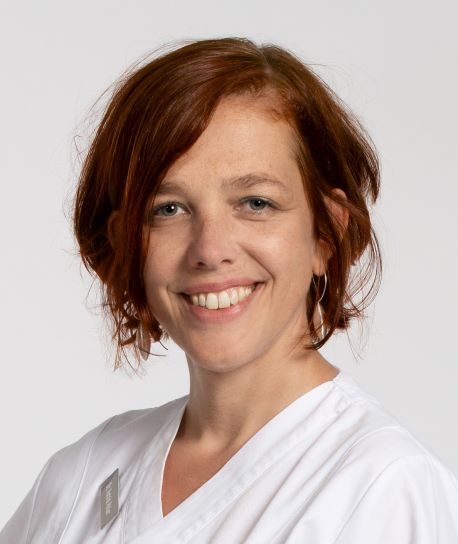«Sexuality, partnership and the desire to have children can only become an issue when a person has accepted their own body»
Interview with Astrid Ahler, gynaecologist specialising in fertility, hormone disorders and sexual medicine at fertisuisse.

Ms Ahler, in 2017 you created the ASK consultation programme*. ASK stands for the German words for awareness, sexuality, body image. Why do we need something like this?
We discovered that people want to know more about these topics, but there are hardly any contact points for those affected to turn to. There is a wide range of late effects after cancer therapy in children and adolescents in this area. These can be fertility problems, hormone deficiency, delayed puberty, pain during sexual intercourse, lack of desire or erection problems. Survivors often feel left alone with their problems and worries or find it difficult to talk about them. Others know too little about possible late effects. For example, the menopause can occur at a very young age after cancer, which is why it is important to clarify whether eggs can be frozen as a preventive measure. Unfortunately, the topics of fertility, sexuality and partnership are not addressed systematically in follow-up care. The idea behind the ASK consultation was to fill this gap in care by offering a combination of fertility and sex therapy.
What role does the desire to have children play for survivors and what medical options are available if fertility is impaired?
We know from surveys that around 80 per cent of survivors would like to have a child of their own in later life. We have patients coming to us who, 20 or 30 years after their cancer therapy, discover that their wish to have a child may remain unfulfilled. We examine whether and to what extent fertility is impaired and what treatment options may be possible. Finding out that fertility is lost permanently because no measures were taken before therapy can be extremely stressful for those affected. All the more so if they were not involved in the decision at the time. To prevent this, parents and children should be given realistic information about the risks and options open to them before cancer treatment takes place. However, we know that the referral rate for fertility counselling among cancer patients under 20 years of age is still less than 10 per cent. Improvements have got to be made here.
What influence can the disease have on body perception?
After successful treatment, the visible signs that the cancer and the therapy have left on the body are one of the main concerns of young survivors. Studies show that particularly adolescents who are in the middle of puberty struggle the most with their changed body image. Regardless of age, however, it can certainly be said that the way cancer has changed the body has a decisive influence on self-perception. This can lead to psychosexual problems in those affected. We have noticed that with the increasing number of childhood cancer survivors, the need for specific education and counselling is also growing in Switzerland. However, to date there are no contact points specialising in this area.
How are body image, sexuality and the desire to have children connected?The same applies to cancer survivors as to other people looking for closeness and intimacy: only those who feel comfortable in their own bodies can open up at all, live out their sexuality and enter into relationships. Survivors whose bodies have changed and no longer conform to the common ideal of beauty may find this far more difficult. Some people have the feeling that they have lost a great deal of their attractiveness and thus their value. For children going through puberty, the challenges are particularly great. Being confronted with your own body, discovering your sexuality, the process of breaking away from your parents and relationships with peers are central issues at this point in life. If the illness then creates a hiatus, there is no opportunity to slowly develop a way of dealing with sexuality and build social relationships. So it takes more than the purely medical side of preserving fertility. Sexuality, partnership and the desire to have children can only become an issue when a person has accepted their own body.
What do you think is needed to better support those affected in this area?Studies show that survivors struggle more often with sexual problems and are less likely to be in relationships compared to their peers. Therefore, oncological counselling that focuses solely on the medical fertility-preserving aspects falls short. In future the topics of body image and sexuality must also be systematically integrated into follow-up care. In addition, it would be helpful if easily accessible and specifically tailored information material was available. This would help both doctors and survivors in dealing with these rather sensitive issues. What is particularly important is that such combined counselling starts early on so that, as far as possible, unnecessary suffering can be prevented and everything can be done to significantly improve the chances of a fulfilled sex life and relationships, whether a person is interested in having children or not.
* The ASK consultation no longer takes place at the University Hospital Basel as before, but is still being continued. For more information or if you would like to make an appointment, please contact Astrid Ahler directly: aahler@fertisuisse.ch